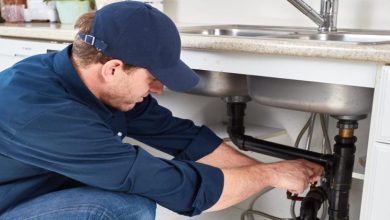Essential Guide to Garage Door Repair: Troubleshooting and Maintenance Tips

A well-functioning garage door is crucial for the security and convenience of your home. However, like any mechanical system, garage doors can encounter issues over time due to wear and tear or lack of maintenance. Understanding common problems and knowing how to troubleshoot them can save you time and money. Here’s a comprehensive guide to garage door repair, including troubleshooting tips and maintenance advice.
Common Garage Door Issues
- Noisy Operation: If your garage door is excessively noisy during operation, it could be due to loose hardware, worn rollers, or lack of lubrication. Tightening bolts and adding lubricant to moving parts such as rollers, hinges, and springs can often reduce noise significantly.
- Door Off Track: A garage door that has come off its track is a serious issue that requires immediate attention. Attempting to operate the door in this state can cause further damage. Contacting a professional garage door repair service is recommended to safely reposition the door back onto its track.
- Slow Response to Remote: When your garage door responds slowly to the remote control or keypad commands, check the batteries in the remote first. If the batteries are fine, the issue might lie with the remote control itself or the opener’s antenna. Sometimes, interference from nearby electronics can also affect signal reception.
- Uneven Closing or Opening: If your garage door closes or opens unevenly, it could indicate a problem with the garage door springs. Springs that are worn out or improperly adjusted can cause the door to sag on one side. This issue should be addressed promptly by a professional to prevent further damage to the door and opener mechanism.
- Sticking or Jerking Motion: A garage door that sticks or jerks during operation might have debris or obstruction on the tracks. Inspect the tracks for any dirt, rust, or objects that could be causing the problem. Cleaning the tracks thoroughly and ensuring they are properly aligned can often resolve this issue.
DIY Garage Door Maintenance Tips
Regular maintenance can prevent many garage door problems from occurring. Here are some essential maintenance tips:
- Lubrication: Apply a silicone-based lubricant to the rollers, hinges, springs, and tracks at least twice a year. Lubrication helps reduce friction and prolongs the life of moving parts.
- Visual Inspection: Periodically inspect the garage door hardware, including springs, cables, rollers, and pulleys, for signs of wear or damage. Replace any worn-out parts immediately to prevent further issues.
- Test Safety Features: Test the garage door’s safety features, such as the auto-reverse mechanism, regularly. Place an object (e.g., a block of wood) in the path of the closing door. The door should reverse direction upon contact with the object.
- Clean the Tracks: Clean the tracks with a damp cloth to remove dirt, dust, and debris. Ensure the tracks are aligned properly and use a level to adjust them if necessary.
- Tighten Hardware: Check and tighten loose bolts, nuts, and screws on the garage door and opener mechanism. Vibrations during operation can cause hardware to loosen over time.
When to Call a Professional
While some garage door repairs can be done DIY, certain issues require the expertise of a professional garage door repair service. Consider calling a professional if:
- The garage door springs need adjustment or replacement.
- There are issues with the garage door opener motor or electronics.
- The door is off its tracks or severely damaged.
- You are unsure about performing the repair safely.
Conclusion
Maintaining and troubleshooting your garage door regularly can extend its lifespan and prevent costly repairs. By following the tips outlined in this guide, you can ensure that your garage door operates smoothly and safely for years to come. Remember, safety should always be a priority when dealing with garage door repairs, and when in doubt, consulting a professional is the best course of action.
Whether it’s addressing noisy operation, fixing an off-track door, or performing routine maintenance, taking proactive steps can save you from unexpected inconveniences and expenses associated with garage door repairs.




